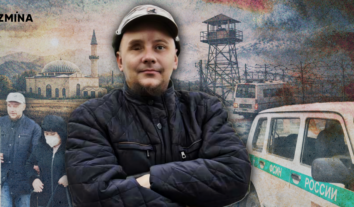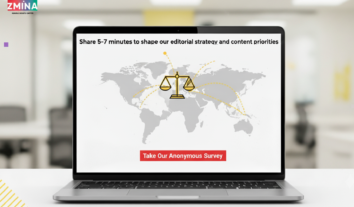Forced confession: Ukraine ignoring UN’s recommendations
Viktor Shchitka is one of the convicts who were forced to confess to a crime under means of torture. The UN Committee on Human Rights had pointed to the miscarriage of justice in his case, but the High Specialized Court did not recognize the decision. The Ukrainians continue serving their sentences since the UN Committee’s decisions have no legal definitions.
The police officers told Viktor Shchitka that he was the only person who could rape and kill the sister of his wife.
“After he had been arrested, he was being humiliated, deprived of water and sleep, banned from using the toilet. He was also denied access to a lawyer. In the evening, November 12, 2000, the police officers began to torture Viktor Shchitka. In particular, he was chained to a metal pipe and hit on the head several times. He was also put a gas mask on and closed access to the air. As a result, he suffered a heart attack. Exactly as told by the police officers, he wrote a confession that he had raped and killed a person,” reads the complaint filed with the UN commission.
The main evidence of the court, his mother said, is a forensic expert opinion, which does not contain the fact of rape, indicated by her son in the statement.
“The Committee recognized the torture and unfair trial and ruled to institute the criminal proceedings against those who had tortured her son and to ensure a fair trial or to release him from prison,” the mother of the deceased reads the abstract from the decision of the UN Committee. Her son died in prison, not having waited until fair hearing of the case.
Decision without status
The fact is that pursuant to Article 445 of the Code of Criminal Procedure, the recognition of the violation of the international obligations by Ukraine by the international judicial institution is a reason for reconsideration of the case under exceptional circumstances.
For example, if the European Court of Human Rights (ECHR) makes conclusion that the right of a person was violated during the trial, the earlier decision taken by the Ukrainian courts should be repealed, the rights of the person should be restored, and the case should be reconsidered.
However, the Ukrainians file complaint not only with the ECHR but with the UN Committee on Human Rights and the UN Committee Against Torture as well, the jurisdictions of which were recognized by Ukraine as a member of the Soviet Union in November 1973.
The problem is that the conclusions of the UN Committee on Human Rights are not subject to the judgments of the international courts. The UN Committee on Human Rights is a group of the experts delegated by the state, not the judges as in the ECHR.
On the one hand, Ukraine recognizes the jurisdiction of the Committee while, on the other hand, its decision have no influence on the opportunity for reconsidering the cases.
“Prisoners of justice”
The Ukrainian Helsinki Human Rights Union (UHHRU) prepared the review of twelve reports of the UN Committee on Human Rights and even launched a timer calculating how many days a person spends in jail following the unjust decision.
Director of the UHHRU Arkadiy Bushchenko says that the sentences to convicts, for example to Viktor Shchitka and Oleksandr Butovenko, remain unchanged because of the uncertainty with the conclusions of the UN Committee.
“It is a shame for Ukraine, which keeps people in jail on grounds that are not considered as enough, fair, and appropriate by the international community. In fact, they are hostages of our imperfect legislation, strange approaches of the Ukrainian higher courts to the legal problems,” Arkadiy Bushchenko says.
The Parliament has to decide the fate of “prisoners of justice” by amending the provisions of the Code of Criminal Procedure.
This is the opinion of Ukrainian Parliament Commissioner for Human Rights Valeria Lutkovska, who has appealed to the UN High Commissioner for Human Rights with the request to explain the status of the findings in other countries and whether they are binding.
“The Office of the UN High Commissioner for Human Rights considers that this position should be individualized in each state. Some states recognize these findings as binding while some perceive these decisions as recommendations only,” Lutkovska said.
The Ombudsperson considers that Ukraine should recognize another international instrument, making the UN Committee conclusions binding that would be the reason for reconsideration of the judgments under exceptional circumstances.
MP Heorhiy Lohvynsky is convinced that the issue of correction of judicial errors in Ukraine is not resolved as there will be the need for holding liable the law enforcers and judges in case the errors are admitted.
“If a court repeals a previous decision or recognizes the fact of torture, the prosecutors and judges, and the law enforcement officers, who have committed these violations, should be held liable,” the MP from the People’s Front Party faction says.
“What a kind of the judicial system it is if it reviews the ECHR ruling and delivers the same judgment again. We need to work on two levels: to change the legislation and to change the judicial system. We should hold liable any person who does not want to renew the rights of our citizens,” Heorhiy Lohvynsky notes.
The MP promises that soon the Parliament will amend the Code of Criminal Procedure with an appropriate bill and hopes that the establishment of the State Bureau of Investigation, the Anti-Corruption Bureau, and the change in the functions of the prosecutor’s office will make Ukrainian judicial system more quality.














